
Presseschau
Februar 2019
AUßENPOLITISCHES
Schuldenmonitor des IIF
Die Welt steckt in der Schuldenfalle
https://boerse.ard.de/anlagestrategie/geldanlage/die-welt-steckt-in-der-schuldenfalle100.html
Zeiten ändern sich – Doch Gold ist beständig
https://www.goldseiten.de/artikel/401654--Zeiten-aendern-sich---Doch-Gold-ist-bestaendig.html?seite=1
(Mit Oxfam und mehr Linkssozialismus gegen Rechtspopulismus...) Tiefer Graben zwischen Arm und Reich - „Nährboden für Nationalismus“
https://web.de/magazine/wirtschaft/tiefer-graben-arm-reic...
Vergemeinschaftung der Sozialsysteme
Juncker für europäische Arbeitslosenversicherung
https://jungefreiheit.de/politik/deutschland/2019/juncker-fuer-europaeische-arbeitslosenversicherung/
Ausschreitungen in Frankreich
Regierungssprecher flieht vor Angriff der „Gelbwesten“
https://www.welt.de/politik/ausland/article186592086/Fran...
Frankreich: Gelbwesten zerstören 60 Prozent der Blitzer
http://www.pi-news.net/2019/01/frankreich-gelbwesten-zers...
Französische Regierung: Ausland unterstützt „Gelbwesten“ Frankreich vermutet, dass andere Staaten den „Gelbwesten“ bei ihren Protesten helfen. Als Beispiel führt der französische Regierungssprecher Italien an.
https://www.handelsblatt.com/politik/international/paris-franzoesische-regierung-ausland-unterstuetzt-gelbwesten/23847298.html?ticket=ST-2343584-zAeeWcmgoNIjew460G7k-ap4
Frankreich
Manifest der Gelbwesten: Ende der Austeritätspolitik, Volksentscheide, Begrenzung der Mietpreise
https://deutsch.rt.com/europa/80823-manifest-gelbwesten-e...
Klimaschutz
Schweden verbietet ab 2030 Diesel- und Benzinautos
https://www.welt.de/wirtschaft/article187498672/Klimaschu...
Namensstreit um Mazedonien – Mehr als 100.000 Griechen demonstrieren in Athen
https://www.zdf.de/nachrichten/heute/zehntausende-grieche...
Athen: Verletzte bei Protesten gegen Umbenennung Mazedoniens https://www.zeit.de/politik/ausland/2019-01/athen-demonstration-umbenennung-mazedonien-nordmazedonien-griechenland
Vor Abzug aus Syrien
Trump droht Türkei mit „wirtschaftlicher Vernichtung“
https://jungefreiheit.de/politik/ausland/2019/trump-droht...
Abkommen mit Russland
USA steigen aus INF-Abrüstungsvertrag aus
http://www.spiegel.de/politik/ausland/usa-kuendigen-ausstieg-aus-inf-abruestungsvertrag-mit-russland-an-a-1251108.html
Vorfall am Lincoln-Memorial
Fake-News-Kampagne gegen friedliche Schüler
https://jungefreiheit.de/debatte/kommentar/2019/fake-news-kampagne-gegen-friedliche-schueler/
(Dazu...)
Sonntagsheld (94) – So lach doch mal
https://sezession.de/60082/sonntagsheld-94-so-lach-doch-mal
Oberster Gerichtshof bestätigt Transgender-Verbot im US-Militär https://jungefreiheit.de/politik/ausland/2019/oberster-gerichtshof-bestaetigt-transgender-verbot-im-us-militaer/
(Über 100.000 Dollar für den Quadratmeter)
New York
Milliardär kauft teuerste US-Wohnung aller Zeiten
https://www.goldreporter.de/milliardaer-kauft-teuerste-us...
Notlage in Venezuela : 1,3 Millionen Prozent Inflation
https://www.faz.net/aktuell/wirtschaft/arm-und-reich/wie-...
(Haft in Venezuela)
JF-TV Spezial1
#freebilly: Freiheit für Billy Six!
https://jungefreiheit.de/kultur/medien/2019/freebilly-freiheit-fuer-billy-six/
Weitere Journalisten in Venezuela festgenommen
https://jungefreiheit.de/politik/ausland/2019/weitere-journalisten-in-venezuela-festgenommen/
Präsident Jair Bolsonaro
Brasilien steigt aus dem UN-Migrationspakt aus
https://jungefreiheit.de/politik/ausland/2019/brasilien-steigt-aus-dem-un-migrationspakt-aus/
Notfalls mit Gewalt
China droht Taiwan mit Wiedervereinigung
https://www.tagesschau.de/ausland/china-taiwan-121.html
Chinesische Kriegsrhetorik: Droht ein Krieg um Taiwan? https://www.faz.net/aktuell/politik/ausland/droht-ein-krieg-um-taiwan-15968934.html
Kambodscha
Lebenslang für zwei Anführer der Roten Khmer
https://www.welt.de/geschichte/video183952010/Urteile-Lebenslang-fuer-zwei-Anfuehrer-der-Roten-Khmer.html
Kambodscha : Rote Khmer-Führer wegen Völkermords zu lebenslanger Haft verurteilt
https://www.faz.net/aktuell/politik/ausland/kambodscha-ro...
Thailänder wegen Falschmeldung über Smog-Opfer festgenommen
https://www.greenpeace-magazin.de/ticker/thailaender-wege...
Indien
She Wanted to ‚Understand the Forest More.‘ So She Made History Dhanya Sanal named as first woman to scale sacred Agasthyakoodam mountain
http://www.newser.com/story/270084/only-men-climbed-this-...
Zwei Wochen Zwangspause
Internet-Blackout legt Tonga lahm
https://www.n-tv.de/panorama/Internet-Blackout-legt-Tonga-lahm-article20840547.html
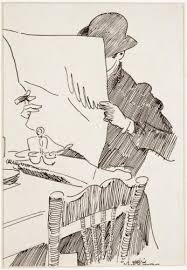
INNENPOLITISCHES / GESELLSCHAFT / VERGANGENHEITSPOLITIK
Uno-Untersuchung
Deutsche zahlen ganz gern Steuern
Viele Bürger klagen oft über hohe Abgaben. Eine von der Uno veröffentlichte Untersuchung kommt aber zu dem Schluss: Die Akzeptanz des Steuersystems ist in Deutschland hoch – verglichen mit anderen Ländern.
http://www.spiegel.de/wirtschaft/soziales/steuern-deutsche-zahlen-im-internationalen-vergleich-gerne-a-1246243.html
Milliarden-Steuersenkung geplant
Finanzministerium wappnet sich für Wirtschaftskrise
https://www.n-tv.de/wirtschaft/Finanzministerium-wappnet-...
Finanzen
402 Millionen Euro Kindergeld fließen ins Ausland
https://jungefreiheit.de/politik/deutschland/2019/402-mil...
Entscheidung ist gefallen: Ulm wird Standort für neues Nato-Hauptquartier
https://www.schwaebische.de/landkreis/alb-donau-kreis/ulm...
Flüchtlingspolitik
Merkel: „Das Land war vielleicht nie so versöhnt, wie man dachte“
https://jungefreiheit.de/politik/deutschland/2019/merkel-...
Unter der Herrschaft einer Form der milden Funktionärsdiktatur Der Niedergang der klassischen Volksparteien ist unaufhaltsam – Teil 2
https://www.heise.de/tp/features/Unter-der-Herrschaft-ein...
Lage 2019 (I): Der Feind
von Götz Kubitschek
https://sezession.de/60086/lage-2019-i-der-feind
Sonntagsheld (95) – Überlebt, oder sterbt!
https://sezession.de/60095/sonntagsheld-95-ueberlebt-oder-sterbt
Das von den Grünen gelöschte Video
Grünen-Chef Robert Habeck erklärt Thüringen zur Diktatur
http://www.pi-news.net/2019/01/gruenen-chef-robert-habeck...
Grüne
Der Öko-Jetset ist beleidigt
von Birgit Kelle
https://jungefreiheit.de/debatte/kommentar/2019/der-oeko-jetset-ist-beleidigt/
Grüner wird Cheflobbyist für Glyphosat
http://www.pi-news.net/2019/01/gruener-wird-cheflobbyist-fuer-glyphosat/
„Gibt keine wissenschaftliche Begründung“
Lungenärzte schreiben Brandbrief gegen Feinstaub-Grenzwerte
https://jungefreiheit.de/allgemein/2019/lungenaerzte-schr...
Massiver Diebstahl.
Datenleck betrifft deutsche Politiker „aller Ebenen“ – auch Merkel
https://www.welt.de/politik/deutschland/article186533478/...
Mehrere Stunden Befragung
19-Jähriger wegen Hackerangriff vernommen
https://www.n-tv.de/politik/19-Jaehriger-wegen-Hackerangriff-vernommen-article20799099.html
BKA und Generalstaatsanwalt: „Doxxing“-Angriff war Tat eines Einzelnen – Verärgerung als Motiv
https://www.gmx.net/magazine/politik/hackerangriff-live-t...
(Dazu...)
Sonntagsheld (91) – Gottes Werk und Teufels Beitrag
https://sezession.de/60045/sonntagsheld-91-gottes-werk-un...
(Dazu... Zitat: „Bei mir Mordaufruf, keine Reaktion. Martin Schulz ruft jemand auf der `privaten Telefonnummer´ an, und sofort republikweiter Riesenskandal und der Staatsschutz schaltet sich ein. Der Typ, der da anrief, war nicht mal unfreundlich oder bedrohlich.“)
https://blog.fefe.de/
Medienpräsenz von Politikern
Grünen-Chefs sind Talkshow-Lieblinge
https://jungefreiheit.de/politik/deutschland/2019/gruenen-chefs-sind-talkshow-lieblinge/
AfD-Anfrage
Flüchtlingskrise: Millionenkosten für externe Berater
https://jungefreiheit.de/politik/deutschland/2019/fluecht...
AfD-Spitze sperrt Poggenburg zwei Jahre lang für alle Ämter
https://www.gmx.net/magazine/politik/afd-spitze-sperrt-po...
Parteineugründung geplant
André Poggenburg verläßt die AfD
https://jungefreiheit.de/politik/deutschland/2019/andre-poggenburg-verlaesst-die-afd/
Poggenburg? Ein „Aufbruch“ als Warnschuß
https://sezession.de/60055/poggenburg-ein-aufbruch-als-warnschuss
Stadtparlamentarier in der Kritik
Wirft AfD den Heusenstammer Carsten Härle aus der Partei?
https://www.op-online.de/region/heusenstamm/wirft-heusens...
Bundesrat
Berlin plant Gesetz für straffreies Schwarzfahren
https://jungefreiheit.de/politik/deutschland/2019/berlin-plant-gesetz-fuer-straffreies-schwarzfahren/
Merkel bleibt beliebteste Politikerin
https://jungefreiheit.de/politik/deutschland/2019/merkel-bleibt-beliebteste-politikerin/
Das Gemälde, das Angela Merkel ablehnte
Künstlerin Maribel Brandis wollte es ihr schenken. Doch im Kanzleramt fehlt der Platz dafür. Aus Berlin kam eine freundliche Absage.
http://www.ln-online.de/Lokales/Ostholstein/Das-Gemaelde-das-Angela-Merkel-ablehnte
Afrikanisches Viertel
Berlin: Anwohner wehren sich gegen Straßenumbenennungen
https://jungefreiheit.de/kultur/2019/berlin-anwohner-wehr...
Max Otte: Deutschland im Spannungsfeld der Globalisierung und Geopolitik
https://www.youtube.com/watch?v=5UtlRPsoPTs
30 Jahre 1989. Wider die Geschichtsklitterung
https://www.achgut.com/artikel/30_jahre_1989._wider_die_geschichtsklitterung
(Linksradikale „Friedensplattform“ fordert positivere Würdigung der kommunistischen Novemberrevolutionäre)
Hanau
Friedensplattform kritisiert Darstellung der Revolution von 1918 Empörung über „militaristische Ausstellung“
https://www.op-online.de/region/hanau/empoerung-ueber-militaristische-ausstellung-11041835.html
Hanau
„Kein Militarismus“:
Kritisierte Weltkriegs-Ausstellung bekommt Unterstützung
https://www.op-online.de/region/hanau/hanau-kritisierte-w...
Nach Rede im Bayerischen Landtag
AfD: Knobloch mißbraucht Andenken der NS-Opfer
https://jungefreiheit.de/politik/deutschland/2019/afd-kno...
(Zu Knoblochs Eklat ein treffender Kommentar...) Gedenkveranstaltung
Das schlechte Gewissen der Charlotte K.
Von Thorsten Hinz
https://jungefreiheit.de/debatte/kommentar/2019/das-schlechte-gewissen-der-charlotte-k/
Gemeinsame Erklärung
Deutschland entschädigt Überlebende der Blockade Leningrads
https://jungefreiheit.de/politik/deutschland/2019/deutsch...
(Vergangenheitsbewältigungs-Kitsch mit Schülern) Mühlheim
Friedrich-Ebert-Schüler
Gefangen in der Stille
https://www.op-online.de/region/muehlheim/friedrich-ebert-schueler-muehlheim-gefangen-stille-11543234.html

LINKE / KAMPF GEGEN RECHTS / ANTIFASCHISMUS / RECHTE
Im Visier der Populisten
„Erklärung der Vielen“ gegen Intoleranz und Rassismus
https://www.op-online.de/region/frankfurt/frankfurt-erkla...
Jongen: „Die Vielen“ und deren Unterstützer aus der Kulturszene sind besessen vom Wahnbild des Rechtspopulismus
https://www.afdbundestag.de/jongen-die-vielen-und-deren-unterstuetzer-aus-der-kulturszene-sind-besessen-vom-wahnbild-des-rechtspopulismus/
Impotenter Konformismus statt kreativer Kunst
Das Elend des politisch-korrekten Kulturbetriebs
http://www.pi-news.net/2019/02/das-elend-des-politisch-korrekten-kulturbetriebs/
Null Toleranz für Hassparolen und Extremisten
Skandalöse Sonderrechte für linke Zentren in Frankfurt
http://www.bff-frankfurt.de/artikel/index.php?id=1369
Aussteigerprogramm für Linksextreme
Burschenschafter sorgt für linken Sturm im Blätterwald von Alexander Graf
https://jungefreiheit.de/politik/deutschland/2019/burschenschafter-sorgt-fuer-linken-sturm-im-blaetterwald/
„Vaterlandslose Gesellen“
Anti-Deutschland-Kaffeebecher: Shitstorm gegen Jusos
https://jungefreiheit.de/politik/deutschland/2019/anti-de...
(Öffentlich-rechtlicher Kameramann sympathisiert mit Linksradikalen) Dreimal besonders lang und in Großaufnahme gezeigt Danisch zum Antifa-Kameramann des ZDF: Das war kein Versehe
http://www.pi-news.net/2019/01/danisch-zum-antifa-kameram...
http://www.danisch.de/blog/2018/12/31/das-zdf-der-kameram...
MDR verteidigt Mitarbeiter mit Anti-AfD-Shirt
https://jungefreiheit.de/politik/deutschland/2019/mdr-verteidigt-mitarbeiter-mit-anti-afd-shirt/
Tontechniker mit „FCK AFD“-Shirt: MDR rudert zurück
https://jungefreiheit.de/kultur/medien/2019/tontechniker-...
Hunderte demonstrieren in Gedenken an Oury Jalloh in Dessau Mehr als 800 Menschen haben in Dessau an den Todestag des vor 14 Jahren verbrannten Asylbewerbers Oury Jalloh erinnert. Die Anwältin von Jallohs Familie strebt ein neues Gerichtsverfahren an.
https://www.mdr.de/sachsen-anhalt/dessau/dessau-rosslau/demo-oury-jalloh-todestag-100.html
(Kritik an „Feine Sahne Fischfilet“ und deren Anhängern) „Anständiger Punk“ – ein Dokument
https://sezession.de/60057/anstaendiger-punk-ein-dokument
Bundesweite Aktionen
Symbolischer Protest der Identitären Bewegung gegen linke Gewalt
http://www.pi-news.net/2019/01/symbolischer-protest-der-i...
„Unfaßbare Übertreibung“
Aktion gegen „taz“: Identitäre Bewegung weist Vorwürfe zurück
https://jungefreiheit.de/politik/deutschland/2019/aktion-...
(Dazu ...mal wieder Hanning Voigts)
Aktion der Identitären Bewegung
Haltungsritter im Antlitz des Schreckens
https://jungefreiheit.de/debatte/kommentar/2019/haltungsritter-im-antlitz-des-schreckens/
(...mal wieder Ulla Jelpke)
Sicherheitsgefühl der Bevölkerung
Jelpke: AfD ist für Zunahme von Waffenscheinen verantwortlich
https://jungefreiheit.de/politik/deutschland/2019/jelpke-...
(Schwache Antifa-Proteste in Schnellroda)
Winterakademie in Schnellroda – Wir und die anderen
https://sezession.de/60070/winterakademie-in-schnellroda-...
Die Nazi-Mentalität auf Nazi-Suche, x.-te Folge
von Michael Klonovsky
https://www.michael-klonovsky.de/acta-diurna/item/1056-1-februar-2019
Hauptversammlung der Siemens-Aktionäre
Siemens-Chef Kaeser muß sich wegen AfD-Kritik verantworten
https://jungefreiheit.de/politik/deutschland/2019/siemens...
„Flügel“ und JA Verdachtsfälle
Verfassungsschutz nimmt AfD bundesweit ins Visier
https://jungefreiheit.de/politik/deutschland/2019/verfass...
Der Verfassungsschutz als Instrument
Der neue Verfassungsschutzpräsident Thomas Haldenwang hat wie erwartet geliefert
https://sezession.de/60062/der-verfassungsschutz-als-inst...
Verfassungsschutz und AfD
Die Richtung ist klar
von Jörg Kürschner
https://jungefreiheit.de/politik/deutschland/2019/die-richtung-ist-klar/
»Prüffall« – Einsatz ungesetzlicher Mittel?
https://sezession.de/60072/prueffall-einsatz-ungesetzlichen-mitteln
Wir veröffentlichen das Verfassungsschutz-Gutachten zur AfD Der Verfassungsschutz sieht Anhaltspunkte dafür, dass die AfD verfassungsfeindlich ist. Das geht aus einem detaillierten und geheimen Gutachten hervor, das wir in voller Länge veröffentlichen. Das Dokument gehört in die Öffentlichkeit und nicht in einen Panzerschrank, aus vielen Gründen.
https://netzpolitik.org/2019/wir-veroeffentlichen-das-verfassungsschutz-gutachten-zur-afd/
Zahlreiche regionale Medien analysieren das Verfassungsschutz-Gutachten zur AfD Mehrere Medien haben sich mit dem Gutachten des Verfassungsschutzes zur AfD beschäftigt. In ihren Artikeln beleuchten sie Aspekte, die gerade für lokale Leserinnen und Leser relevant sind. Das zeigt, wie wichtig es ist, Dokumente im Ganzen zu veröffentlichen.
https://netzpolitik.org/2019/zahlreiche-regionale-medien-analysieren-das-verfassungsschutz-gutachten-zur-afd/
Gutachten des Verfassungsschutzes
Einer Demokratie unwürdig
von Dieter Stein
https://jungefreiheit.de/debatte/streiflicht/2019/einer-demokratie-unwuerdig/
Abrechnung mit Ex-Partei
AfD-Gründer Bernd Lucke wollte in den Hungerstreik treten AfD-Gründungsvater Bernd Lucke geht in einem Interview hart mit seiner Ex-Partei ins Gericht. Sie sei „eine latent fremdenfeindliche, deutschnationale Partei mit rechtsradikalen Einsprengseln“, so der Wirtschaftswissenschaftler.
https://www.stern.de/politik/deutschland/afd-mitbegruender-bernd-lucke-fuer-ueberwachung-der-partei-8557816.html
Gewerkschaft der Polizei
Polizisten auf AfD-Wahllisten sollen sich von Höcke distanzieren
https://jungefreiheit.de/politik/deutschland/2019/polizis...
Diskussion um Verfassungsschutz
Niedersachsens Innenminister sieht Beamte in der AfD kritisch
https://jungefreiheit.de/politik/deutschland/2019/nieders...
TV-Kritik zu „Maischberger“
Gaulands Erfolgsrezept ist der Empörungseifer der anderen
https://jungefreiheit.de/kultur/medien/2019/gaulands-erfo...
Weidels Umarmung schlägt weiter hohe Wellen
Sind Henryk M. Broder und Neue Zürcher ein Fall von „Rechts“?
http://www.pi-news.net/2019/02/sind-henryk-m-broder-und-n...
(Was will meinem Dieter Kosslick damit sagen? Dass AfD-Abgeordnete noch nie etwas vom Warschauer Ghetto gehört haben? Oder dass er den Durchblick hat?..)
Berlinale-Direktor lädt AfD zu Film über Warschauer Ghetto ein
https://www.sueddeutsche.de/kultur/berlinale-afd-holocaus...
Leipzig
Sachsens Justizminister verurteilt Anschlag auf Gerichtsgebäude
https://jungefreiheit.de/politik/deutschland/2019/sachsen...
Linksextremismus
Aufruf zu Anschlägen auf AfD-Politiker: Anleitung zum perfekten Mord
https://jungefreiheit.de/politik/deutschland/2019/aufruf-...
Politisches Klima in Deutschland
Jeder fünfte Einwanderer toleriert Gewalt gegen die AfD https://jungefreiheit.de/politik/deutschland/2019/jeder-fuenfte-einwanderer-toleriert-gewalt-gegen-die-afd/
Explosion vor AfD-Büro in Döbeln – Hintergründe unklar
https://www.gmx.net/magazine/panorama/explosion-afd-buero...
Vorfall in Döbeln
SPD-Mann nach Explosion vor Parteibüro: „Dieser Anschlag hilft der AfD“
https://www.merkur.de/politik/doebeln-sachsen-anschlag-au...
Spirale der Gewalt
Sprengstoffattentat auf AfD-Bürgerbüro im sächsischen Döbeln
https://www.tichyseinblick.de/daili-es-sentials/sprengsto...
AfD-Abgeordneter Magnitz bleibt nach Angriff im Krankenhaus
https://www.gmx.net/magazine/politik/afd-abgeordneter-mag...
Brutaler Mordanschlag auf Bremer AfD-Bundestagsabgeordneten
http://www.pi-news.net/2019/01/brutaler-mordanschlag-auf-...
AntiFa Bremen bekennt sich zu Anschlag auf AfD-Politiker Magnitz
http://www.pi-news.net/2019/01/antifa-bremen-bekennt-sich...
(Veronika Kracher)
Magnitz‐Attentat: Journalistin schockiert mit Billigung linksextremer Gewalt
https://www.tagesstimme.com/2019/01/08/magnitz-attentat-j...
(Bremen als Brutstätte linksextremer Hetze und Gewalt) Weimar 2.0: Attentat auf Bremer AfD-Landesvorsitzenden
https://www.achgut.com/artikel/weimar_2.0_attentat_auf_br...
(Kommentar, der leider ein frommer Wunsch bleiben wird...) Angriff auf AfD-Bundestagsabgeordneten
Ein Innehalten ist dringend notwendig
von Dieter Stein
https://jungefreiheit.de/debatte/kommentar/2019/ein-innehalten-ist-dringend-notwendig/
(Dazu...)
Nicht nur die Tat von drei Kriminellen
Der Anschlag des Ausgrenzungsstaates
http://www.pi-news.net/2019/01/der-anschlag-des-ausgrenzungsstaates/
(Dazu...)
taz, Döbeln, Magnitz, taz …
von Götz Kubitschek
https://sezession.de/60049/taz-doebeln-magnitz-taz
Linksextreme Kracher
#Zusammengelatzt – taz-Autorin begrüßt Anschlag auf AfD-Magnitz
http://www.pi-news.net/2019/01/zusammengelatzt-taz-autori...
Überfälle, Brandanschläge, Farbattacken: Gewalt gegen AfD Der Fall Magnitz ist kein Einzelfall
https://jungefreiheit.de/politik/deutschland/2019/der-fall-magnitz-ist-kein-einzelfall/
(Womöglich soll eine solche Meldung zu diesem Zeitpunkt suggerieren, dass es doch nur einen Kriminellen getroffen hat...)
Untreueverdacht: Ermittlungen gegen Bremer AfD-Chef Magnitz
https://www.gmx.net/magazine/politik/untreueverdacht-ermi...
Fall Magnitz: Alles ein bisschen anders
Hat die AfD den Angriff auf ihren Politiker falsch dargestellt? Das hatten viele Medien behauptet. Stimmt das? Ein Faktencheck
https://www.publicomag.com/2019/01/fall-magnitz-alles-ein-bisschen-anders/?fbclid=IwAR2GvndsP1vfaXnpWY7hS1fKe-SAuV50qoTzri5jsS_gSf8AK163XVXvz0E
Gewalt gegen AfD
Früchte linker Hypermoral
von Kurt Zach
https://jungefreiheit.de/debatte/kommentar/2019/fruechte-linker-hypermoral/
Veranstaltung im „Käfig“
Stuttgart: „Antifa“ stört massiv AfD-Mahnwache gegen Gewalt
http://www.pi-news.net/2019/01/stuttgart-antifa-stoert-ma...
(Nicole Diekmann)
„Nazis raus“
ZDF-Reporterin Nicole Diekmann als Taktgeberin für Straßenterror
http://www.pi-news.net/2019/01/zdf-reporterin-nicole-diek...
Leverkusen
Vermummte brechen Tür samt Rahmen von AfD-Mitglied aus der Wand und bedrohen es mit Messer
https://juergenfritz.com/2017/12/21/ueberfall-auf-afd-ler/
Autor der Amadeu-Antonio-Stiftung
Rechtsextremismusexperte soll Brandanschlag begangen haben
https://jungefreiheit.de/politik/deutschland/2019/rechtse...
Politische Gewalt in Berlin-Neukölln eskaliert
Nazi-Experte soll Brandanschlag auf AfD-Politiker verübt haben
https://www.tagesspiegel.de/berlin/politische-gewalt-in-b...
AfD-Fraktionschefin Alice Weidel
Die SPD hat ein Linksextremismus-Problem
https://jungefreiheit.de/debatte/kommentar/2019/die-spd-hat-ein-linksextremismus-problem/
Leipzig: Brandanschlag auf Auto von Alex Malenki („Laut Gedacht“)
http://www.pi-news.net/2019/01/leipzig-brandanschlag-auf-...
Linksextremismus
Leipzig-Ausschreitungen: Polizei startet neuen Fahndungsaufruf
https://jungefreiheit.de/politik/deutschland/2019/leipzig...
Während Demonstration
Linksradikale stürmen Kölner Stadthaus
https://jungefreiheit.de/politik/deutschland/2019/linksra...
https://www.welt.de/politik/deutschland/article188070243/...
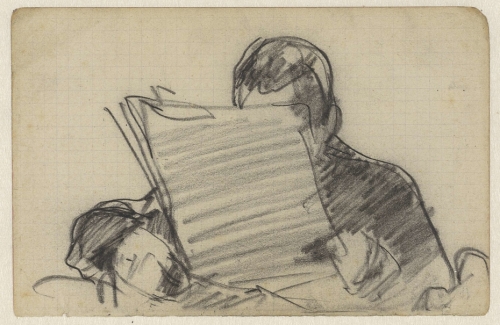
EINWANDERUNG / MULTIKULTURELLE GESELLSCHAFT
(Andreas Zick – Propaganda...)
Studie zur Zuwanderung
Deutsche wünschen sich wieder mehr Willkommenskultur
https://jungefreiheit.de/politik/deutschland/2019/deutsch...
Wenn Aeneas vor der Wahl steht
https://sezession.de/59595/wenn-aeneas-vor-der-wahl-steht
Keine Konsequenzen
Falschangaben im Asylverfahren bleiben straffrei
https://jungefreiheit.de/politik/deutschland/2019/falschangaben-im-asylverfahren-bleiben-straffrei/
Mittelmeerroute
Linke Politiker fordern Aufnahme weiterer Flüchtlinge
https://jungefreiheit.de/politik/ausland/2019/linke-polit...
Vatikan
Papst fordert Aufnahme von Sea-Watch-Migranten
https://jungefreiheit.de/politik/ausland/2019/papst-forde...
Migranten auf Malta
Deutschland nimmt 60 Bootsflüchtlinge auf – Jubel auf „Sea Watch“
https://jungefreiheit.de/politik/deutschland/2019/deutsch...
„Seenotrettung“
Kardinal Marx spendet erneut an „Mission Lifeline“
https://jungefreiheit.de/politik/deutschland/2019/kardina...
(Schlepper)
Schweden
Rostocker Diakon wegen Menschenschmuggels verurteilt
https://jungefreiheit.de/politik/ausland/2019/rostocker-d...
https://www.ndr.de/nachrichten/mecklenburg-vorpommern/Men...
Kirchenasyl
Solinger Kirchengemeinde verhindert Abschiebung
https://jungefreiheit.de/politik/deutschland/2019/solinge...
Aufnahme verweigert
Afghanistan schickt Mehrfachtäter zurück nach Deutschland
https://jungefreiheit.de/politik/ausland/2019/afghanistan...
Privatjet
Abschiebung zweier Afrikaner kostet 165.000 Euro
https://jungefreiheit.de/politik/deutschland/2019/abschie...
Frankfurter Flughafen
Syrer verhindert Abschiebung mit Nagelfeile
https://jungefreiheit.de/politik/deutschland/2019/syrer-verhindert-abschiebung-mit-nagelfeile/
(Winterurlauber)
Köln: Zahl der „Winter-Flüchtlinge“ auf Rekordhoch
https://jungefreiheit.de/politik/deutschland/2019/koeln-z...
(Zahlen dürfen immer die anderen...)
Bund und Länder
Steuerzahler sollen für Flüchtlingsbürgschaften aufkommen
https://jungefreiheit.de/politik/deutschland/2019/steuerz...
Modellprojekt in Baden-Württemberg
Grünes Verkehrsministerium bildet Flüchtlinge zu Lokführern aus
https://jungefreiheit.de/politik/deutschland/2019/gruenes...
(Satire)
Fluchtursache Nr. 1 = Outdoor Illner?
https://www.youtube.com/watch?v=fHoXBO-AU4k
Haftbefehl aufgehoben
Clan-Chef Arafat Abou-Chaker ist wieder frei: Was bedeutet das für Bushido?
https://www.rtl.de/cms/was-bedeutet-arafat-abou-chakers-f...
Hochzeitsgesellschaft blockiert A8 bei Esslingen
Mehrere Fahrzeuge halten hupend auf der Autobahn an
https://www.esslinger-zeitung.de/region/polizei_artikel,-...
Eine Hochzeitsgesellschaft hat am Samstagnachmittag die Autobahn A8 bei Esslingen blockiert. Mehrere Fahrzeuge hielten auf allen drei Spuren den Verkehr an.
https://www.esslinger-zeitung.de/region/polizei_artikel,-hochzeitsgesellschaft-blockiert-a8-bei-esslingen-_arid,2241265.html
Bottroper Amokfahrt: Grüne warnen vor rechtsextremem Netzwerk
https://jungefreiheit.de/politik/deutschland/2019/bottrop...
Martin Sellner: Bottrop war kein „Terroranschlag“
http://www.pi-news.net/2019/01/sellner-bottrop-war-kein-t...
Wie deutsche und ausländische Täter unterschiedlich behandelt werden Ruhrgebiet: Politik und Medien instrumentalisieren Amokfahrt
http://www.pi-news.net/2019/01/ruhrgebiet-politik-und-med...
Bottrop, Bottrop und nochmal Bottrop!
Kampf um Relotius-Preis 2019 voll entbrannt
http://www.pi-news.net/2019/01/kampf-um-relotius-preis-2019-voll-entbrannt/
Kriminalität
Hoher Ausländeranteil in deutschen Gefängnissen
https://jungefreiheit.de/politik/deutschland/2019/hoher-auslaenderanteil-in-deutschen-gefaengissen/
Ausländergewalt
Stadt Cottbus nach Messerangriff: „Ticket in die Heimat lösen“
https://jungefreiheit.de/politik/deutschland/2019/stadt-c...
Asylbewerber schlagen zu
Prügel-Orgie in Amberg: Bürgermeister stellt im „heute journal“ Forderung – und verteidigt sich
https://www.op-online.de/politik/amberg-pruegel-orgie-dur...
Weiterer Schlag gegen das Sicherheitsgefühl der Einheimischen Die Kopftreter von Amberg zeigen uns die Zukunft Deutschlands
http://www.pi-news.net/2019/01/die-kopftreter-von-amberg-...
Hetzjagd von Amberg
Bis zum nächsten Einzelfall
von Michael Paulwitz
https://jungefreiheit.de/debatte/kommentar/2019/bis-zum-naechsten-einzelfall/
Nach Asylantengewalt
Stadt Amberg: Es gibt keine rechtsextreme Bürgerwehr
https://jungefreiheit.de/politik/deutschland/2019/stadt-a...
Polizei sucht Silvester-Messertäter nach Mordversuch Kassel: Lebensgefährlicher Bauchstich nach Spuckattacke in Bahn
http://www.pi-news.net/2019/01/kassel-lebensgefaehrlicher...
(Der Kasseler Täter wurde gefasst...)
38 Jahre altes Opfer nicht mehr in Lebensgefahr
Nach brutaler Messerattacke in Kasseler Tram: Polizei verhaftet 23-Jährigen in Gießen
https://www.hna.de/welt/messerattacke-kassel-polizei-verh...
Bad Kreuznach
Ungeborenes Kind stirbt nach Stichen auf Schwangere
https://www.nrz.de/panorama/bad-kreuznach-ungeborenes-sti...
Freiburg
Gruppenvergewaltigung: Polizei sucht elften Verdächtigen
https://jungefreiheit.de/politik/deutschland/2019/gruppen...
Migrant prügelt auf Busfahrer ein
http://www.politikversagen.net/migrant-pruegelt-auf-busfahrer-ein
Dritter Frauenmord 2019 in Niederösterreich
16jährige getötet und im Park versteckt: Syrer festgenommen
https://jungefreiheit.de/politik/ausland/2019/16jaehrige-...
Thüringen
Seniorin getötet: Haftbefehl gegen 23jährigen Afghanen erlassen
https://jungefreiheit.de/politik/deutschland/2019/seniori...
Zwei Verletzte
Streit vor Kölner Hauptbahnhof eskaliert
http://www.general-anzeiger-bonn.de/region/koeln-und-rheinland/Streit-vor-K%C3%B6lner-Hauptbahnhof-eskaliert-article4008705.html
Gelsenkirchen: Junge Migranten randalieren im Hauptbahnhof
https://jungefreiheit.de/politik/deutschland/2019/gelsenk...
Minden
Bus überrollt Mädchen nach Attacke durch Flüchtling
https://jungefreiheit.de/politik/deutschland/2019/bus-ueb...
Wien-Favoriten
Schüler verprügelt drei Lehrer am Zeugnistag
Weil der 14-Jährige nicht die Hände vom Handy lassen konnte, wurde er zum Direktor zitiert. Am Gang rastete der Bursch aus, attackierte und verletzte drei Pädagogen.
https://www.heute.at/oesterreich/wien/story/Schueler-verpruegelt-drei-Lehrer-am-Zeugnistag-Pernerstorfergasse-Favoriten-44287917

KULTUR / UMWELT / ZEITGEIST / SONSTIGES
Moderne Architektur
Menschenfeindlich, kalt, lieblos – die Misere der deutschen Stadt
https://www.welt.de/kultur/kunst-und-architektur/article1...
„Weniger ist weniger“
Von Rainer Haubrich
In vielen Städten werden monotone Rasterbauten kritisiert. Was diesen fehlt, zeigt sich an zwei aktuellen Beispielen in Berlin. Less is more, sagte einst der berühmte Architekt Mies van der Rohe. Doch meistens stimmt das einfach nicht.
https://berliner-schloss.de/blog/pressespiegel/weniger-ist-weniger/
Vorschlag für Raum der Stille von Hermann Parzinger Wie das Humboldt Forum des kolonialen Unrechts gedenken will
https://www.rbb24.de/kultur/beitrag/2019/01/berlin-humbol...
Bildung und Gerechtigkeit
Gastbeitrag von Heino Bosselmann
Unwillkürlich gelangt auf konservative Positionen, wer die Bestandsverluste innerhalb der Bildung in den Blick nimmt.
https://sezession.de/60083/bildung-und-gerechtigkeit
Frauenquote im Bundestag
Sie werden plaziert
von Michael Klonovsky
https://jungefreiheit.de/debatte/kommentar/2019/sie-werden-plaziert-sonntag/
Brandenburg
Landtag beschließt paritätische Listenaufstellung
https://jungefreiheit.de/politik/deutschland/2019/landtag-beschliesst-paritaetische-listenaufstellung/
Bayern
Biologisches Geschlecht: Erster transidenter Abgeordneter fordert Gesetzesreform
https://jungefreiheit.de/politik/deutschland/2019/biologi...
Sexuelle Vielfalt
Bayern: Grundschulen bekommen Toiletten fürs dritte Geschlecht
https://jungefreiheit.de/politik/deutschland/2019/bayern-...
#metoo
Gillette warnt vor „toxischer Männlichkeit“
https://jungefreiheit.de/kultur/2019/gillette-warnt-vor-toxischer-maennlichkeit/
Geschlechterunterschiede
„Toxische Maskulinät“ ist ein Phantom
https://jungefreiheit.de/debatte/kommentar/2019/toxische-maskulinaet-ist-ein-phantom/
England
Erste Studienabschlüsse in Queer History vergeben
https://jungefreiheit.de/kultur/gesellschaft/2019/erste-s...
„Der*die Ingenieur*in“11
Stadt Hannover führt „geschlechtsumfassende“ Sprache ein
https://jungefreiheit.de/politik/deutschland/2019/stadt-h...
Deutsche Rechtschreibung
Jury hat gewählt: „Gendersternchen“ ist „Anglizismus des Jahres“
https://jungefreiheit.de/kultur/gesellschaft/2019/jury-ha...
Unwort des Jahres
Linke Sprach-Hegemonie überwinden
https://jungefreiheit.de/debatte/kommentar/2019/linke-sprach-hegemonie-ueberwinden/
Wahl der Freien Medien
„Hetzjagden und Zusammenrottungen“ ist alternatives Unwort 2018
http://www.pi-news.net/2019/01/hetzjagden-zusammenrottung...
Stellungnahme von Dr. Viktor Heese
Autor deckt hohe ARD-Gehälter auf und wird von „Heise“ entlassen
http://www.pi-news.net/2019/01/autor-deckt-hohe-ard-gehae...
Deutsche Einheit
Vaatz: ARD und ZDF senden aus einer Parallelwelt heraus
https://jungefreiheit.de/politik/deutschland/2019/vaatz-a...
Öffentliche-rechtliche Medien
Furchtbar teure Meinung
von Jürgen Liminski
https://jungefreiheit.de/debatte/kommentar/2019/furchtbar-teure-meinung/
WhatsApp schränkt Weiterleitungen ein – wegen Falschmeldungen
https://www.welt.de/wirtschaft/webwelt/article187464126/W...
Blogger Rainer Meyer
Medienpreis: Claudia Roth sieht Jury-Berufung von „Don Alphonso“ kritisch
https://jungefreiheit.de/kultur/medien/2019/medienpreis-c...
Anja Reschke
Miss Gratismut und die alten weißen Männer
https://jungefreiheit.de/debatte/kommentar/2019/miss-gratismust-und-die-alten-weissen-maenner/
Politische Machtstrukturen
Lieber über Blutwurst diskutieren
von Thorsten Hinz
https://jungefreiheit.de/kultur/2019/lieber-ueber-blutwurst-diskutieren/
WM-Botschafter Stefan Kretzschmar
Handball-Ikone: „Haben keine Meinungsfreiheit mehr“
https://jungefreiheit.de/kultur/gesellschaft/2019/handbal...
Stefan Kretzschmar und die Meinungsfreiheit
Furcht vor der Isolation
von Dieter Stein
https://jungefreiheit.de/debatte/streiflicht/2019/furcht-vor-der-isolation/
Meinungsfreiheit
Jürgen von der Lippe sind Islam-Witze zu heikel
https://jungefreiheit.de/kultur/2019/juergen-von-der-lippe-sind-islam-witze-zu-heikel/
Karl-Valentin-Orden
Streit um Auszeichnung für Volkssänger Gabalier
https://jungefreiheit.de/kultur/2019/streit-um-auszeichnung-fuer-volkssaenger-gabalier/
„Vor allem ausgrenzend“
Kardinal Marx kritisiert den Begriff „christliches Abendland“
https://jungefreiheit.de/kultur/gesellschaft/2019/kardina...
Robert Menasse
Zwischen Sendungsbewußtsein und Größenwahn
von Thorsten Hinz
https://jungefreiheit.de/debatte/kommentar/2019/zwischen-sendungsbewusstsein-und-groessenwahn/
Carl-Zuckmayer-Preis
AfD-Fraktion: Keine Ehrung für Autor Robert Menasse
https://jungefreiheit.de/kultur/2019/afd-fraktion-keine-e...
Ulrike Guérot und Robert Menasse
Das Relotius-Nationalstaaten-Abschafferpärchen der EU
http://www.pi-news.net/2019/01/das-relotius-nationalstaat...
Moral ist Beschränkung
https://sezession.de/60077/moral-ist-beschraenkung
(Zum geistigen Zustand der etablierten politischen Klasse) Zum neuen Jahr
https://sezession.de/60027/zum-neuen-jahr
Unter der Regenbogenfahne der entgrenzten Toleranz Von Damir del Monte
https://www.achgut.com/artikel/unter_der_regenbogenfahne_der_entgrenzten_toleranz
(Filmanalyse)
Geschichtsfälschung: Film zeigt Schwarze, die wichtige Positionen in der Geschichte einnehmen
http://unser-mitteleuropa.com/2019/01/31/geschichtsfaelsc...
Noah Becker
Gericht verurteilt AfD-Politiker zu Schmerzensgeld
https://www.gmx.net/magazine/panorama/gericht-verurteilt-...
Gauland in Schnellroda – Populismus und Demokratie
https://sezession.de/60075/gauland-in-schnellroda-populis...
Karlheinz Weißmann wird sechzig
Das Denken mit dem Handeln verbinden
von Christian Vollradt
https://jungefreiheit.de/kultur/2019/das-denken-mit-dem-handeln-verbinden/
Bürger für Frankfurt
Interview mit Wolfgang Hübner: „Wir sehen die AfD als Konkurrenz an“
https://www.fnp.de/frankfurt/interview-wolfgang-huebner-w...
Nobelpreisträger
Biologe verliert Titel nach Aussagen über Intelligenz von Schwarzen
https://jungefreiheit.de/kultur/2019/biologe-verliert-tit...
Sport als „zu deutsch“ empfunden
Deutscher Handball will vielfältiger werden
https://jungefreiheit.de/kultur/gesellschaft/2019/deutscher-handball-will-vielfaeltiger-werden/
Steaks und Datenhacker
Kommentar: Alle wollen „Alexa“
https://www.op-online.de/wirtschaft/kommentar-alle-wollen-alexa-11131276.html
Feinstaubbelastung an Silvester: Umwelthilfe will jetzt auch Böller und Raketen verbieten
https://rp-online.de/politik/deutschland/umwelthilfe-ford...
Feinstaub nach Silvester: Diese Städte waren 2019 am schmutzigsten
https://utopia.de/silvester-neujahr-luftverschmutzung-fei...
(Zur Medien-Kampagne um Greta Thunberg)
Greta-Glorifizierung
Die berühmteste Klimaschutzaktivistin unserer Zeit hat unrealistische Forderungen. Im Hintergrund wird sie von vielen PR-Agenturen „gesteuert“
https://bazonline.ch/news/standard/gretaglorifizierung/story/10851567
Schweden
Klimaschutz: Professorin empfiehlt vegetarische Diät für Haustiere
https://jungefreiheit.de/politik/ausland/2019/klimaschutz...
„Ocean Cleanup“
Plastikmüllfänger im Meer funktioniert noch nicht
http://www.spiegel.de/wissenschaft/natur/ocean-cleanup-pl...
Plastikmüll-Fänger im Pazifik
Vorläufiges Aus für „Ocean Cleanup“
https://www.tagesschau.de/ausland/cleanup-aus-101.html
Verschmutzung der Ozeane
Taucherin entdeckt Zehntausende Golfbälle im Meer vor Kalifornien
https://www.welt.de/vermischtes/article187531486/Kaliforn...
Juli Zeh bemängelt Rückständigkeit auf dem Land
https://jungefreiheit.de/kultur/2019/juli-zeh-bemaengelt-...
Juli Zeh als Verfassungsrichterin in Brandenburg vereidigt
http://www.maz-online.de/Brandenburg/Juli-Zeh-als-Verfass...
Politische Korrektheit
US-Uni verhüllt Columbus-Gemälde wegen Rassismus-Vorwürfen
https://jungefreiheit.de/politik/ausland/2019/us-uni-verh...
„Relotius“ bis in alle Ewigkeit
Wie die „Trümmerfrauen“ von Phoenix zertrümmert wurden
http://www.pi-news.net/2019/01/wie-die-truemmerfrauen-von...
Frankfurter Zeitung 01.01.1919 : So hausten Matrosen in des Kaisers Schloss
https://www.faz.net/aktuell/politik/der-erste-weltkrieg/h...
Bildergeschichten: Das Spukschloss an der Spree
Wir stellen jede Woche ein Bild vor und erzählen seine Geschichte. Diesmal gehen wir zurück in das Jahr 1918: Revolutionäre hausen im Berliner Schloss
https://www.dw.com/de/bildergeschichten-das-spukschloss-an-der-spree/a-17016028
Medien Virtuelle Realität: Doku soll Hitlers Führerbunker erlebbar machen
https://www.nw.de/blogs/games_und_netzwelt/22351363_Virtu...
Geschichte der Völkerwanderung:
Aber diese Fremden da sind nicht von hier!
https://www.faz.net/aktuell/feuilleton/hoch-schule/zukunftsweisende-modellstudie-bestimmt-voelkerwanderung-anhand-von-dna-analysen-15946878.html
Die Gelben, die Schwarzen, die Weißen.
Von Bettina Gruber.
https://www.achgut.com/artikel/die_gelben_die_schwarzen_die_weissen
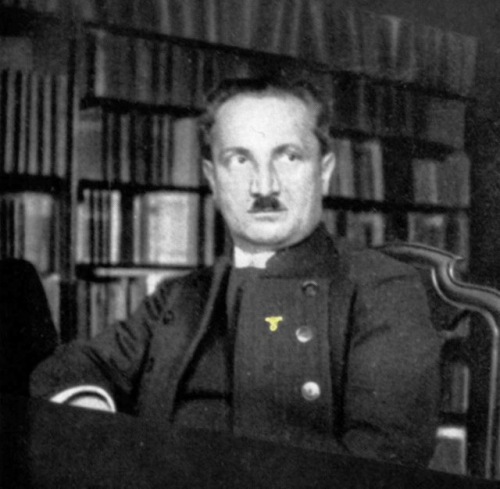 But Heidegger not only joined the Nazi party, he remained a member until it ceased to exist at the end of the Second World War. He attended conferences for Nazi intellectuals, at which he delivered speeches. Heidegger infamously reported faculty members to the gestapo if he regarded them as insufficiently loyal to the new regime. And, even after the war, when the full horrors of the Nazis’ crimes became apparent, he had little to say in repentance or critique. Heidegger’s most public attempt to explain his support for Nazism—a 1966 interview with Der Spiegel magazine—was detailed but notably free of self-examination. This raises a serious problem, as Richard Rorty pointed out in his essay on Heidegger in Philosophy and Social Hope. How could one of the greatest thinkers of the twentieth century ally himself with its most sinister and monstrous political movement?
But Heidegger not only joined the Nazi party, he remained a member until it ceased to exist at the end of the Second World War. He attended conferences for Nazi intellectuals, at which he delivered speeches. Heidegger infamously reported faculty members to the gestapo if he regarded them as insufficiently loyal to the new regime. And, even after the war, when the full horrors of the Nazis’ crimes became apparent, he had little to say in repentance or critique. Heidegger’s most public attempt to explain his support for Nazism—a 1966 interview with Der Spiegel magazine—was detailed but notably free of self-examination. This raises a serious problem, as Richard Rorty pointed out in his essay on Heidegger in Philosophy and Social Hope. How could one of the greatest thinkers of the twentieth century ally himself with its most sinister and monstrous political movement?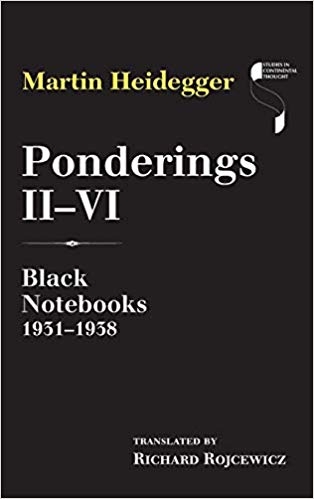 By contrast, Heidegger stressed that materialist satisfaction can never provide a truly meaningful existence. On the contrary, it can only produce tremendous anxiety as we recognize that the limitations of our lives and the inevitability of death will one day bring the party to an end. At that point, our pursuit of material satisfaction and wealth will turn out to have been meaningless. Heidegger argues that many of us realize this, and feel contempt for the vulgarity and emptiness of our societies. Nevertheless, rather than acknowledge this uncomfortable fact, we retreat into the inauthentic world of “das man” or the “they.” We try to ignore the inevitability of our annihilation by conforming to the expectations of consumer society, disregarding the deeper questions that drive us, and believing that, as long as we go about our business, death—and the confrontation with our own inauthenticity—can be postponed indefinitely.
By contrast, Heidegger stressed that materialist satisfaction can never provide a truly meaningful existence. On the contrary, it can only produce tremendous anxiety as we recognize that the limitations of our lives and the inevitability of death will one day bring the party to an end. At that point, our pursuit of material satisfaction and wealth will turn out to have been meaningless. Heidegger argues that many of us realize this, and feel contempt for the vulgarity and emptiness of our societies. Nevertheless, rather than acknowledge this uncomfortable fact, we retreat into the inauthentic world of “das man” or the “they.” We try to ignore the inevitability of our annihilation by conforming to the expectations of consumer society, disregarding the deeper questions that drive us, and believing that, as long as we go about our business, death—and the confrontation with our own inauthenticity—can be postponed indefinitely.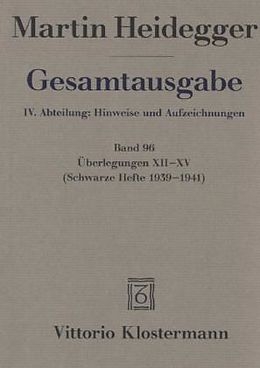 Heidegger was one of the greatest philosophers in the twentieth century, despite his contemptible politics. There remains much we can learn from him, if we take care to isolate the gems of insight from the dangerous currents underneath. This is often a challenge whenever one is dealing with a critique of modernity that is powerful enough to be convincing. One must always take care not to trade the imperfect for the tyrannical.
Heidegger was one of the greatest philosophers in the twentieth century, despite his contemptible politics. There remains much we can learn from him, if we take care to isolate the gems of insight from the dangerous currents underneath. This is often a challenge whenever one is dealing with a critique of modernity that is powerful enough to be convincing. One must always take care not to trade the imperfect for the tyrannical.




 del.icio.us
del.icio.us
 Digg
Digg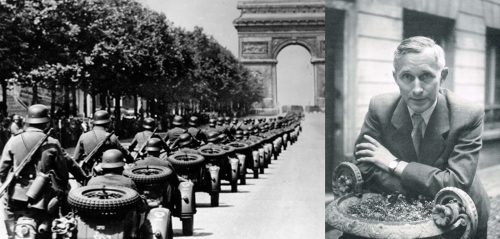
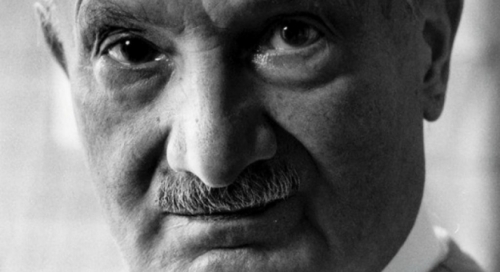

 La grande affluence dans la nouvelle salle de concert, avec l’accueil de plus de 600 visiteurs, a démontré à quel point les actuels récits unilatéraux concernant la Russie préoccupent les citoyens allemands. On a ressenti un fort besoin d’entendre une voix dissidente à l’opinion publiée, différant agréablement de la continuelle «diabolisation de la Russie». Le sous-titre de son dernier livre «Eiszeit» [L’âge de glace] est «Comment la Russie est diabolisée et pourquoi cela est si dangereux».
La grande affluence dans la nouvelle salle de concert, avec l’accueil de plus de 600 visiteurs, a démontré à quel point les actuels récits unilatéraux concernant la Russie préoccupent les citoyens allemands. On a ressenti un fort besoin d’entendre une voix dissidente à l’opinion publiée, différant agréablement de la continuelle «diabolisation de la Russie». Le sous-titre de son dernier livre «Eiszeit» [L’âge de glace] est «Comment la Russie est diabolisée et pourquoi cela est si dangereux».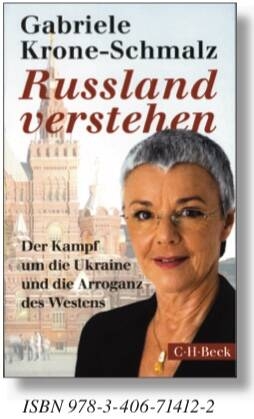 Mais c’est exactement ce que l’historienne et journaliste tente de faire. Une politique étrangère sensée exige que nous prenions en compte les intérêts d’autrui. Cependant, il n’a jamais été et n’est toujours pas dans l’intérêt de l’Occident (des Etats-Unis) que l’Allemagne et la Russie se rapprochent et coopèrent. L’exemple actuel est la tentative du gouvernement américain d’empêcher la construction du gazoduc Nord Stream 2.
Mais c’est exactement ce que l’historienne et journaliste tente de faire. Une politique étrangère sensée exige que nous prenions en compte les intérêts d’autrui. Cependant, il n’a jamais été et n’est toujours pas dans l’intérêt de l’Occident (des Etats-Unis) que l’Allemagne et la Russie se rapprochent et coopèrent. L’exemple actuel est la tentative du gouvernement américain d’empêcher la construction du gazoduc Nord Stream 2.
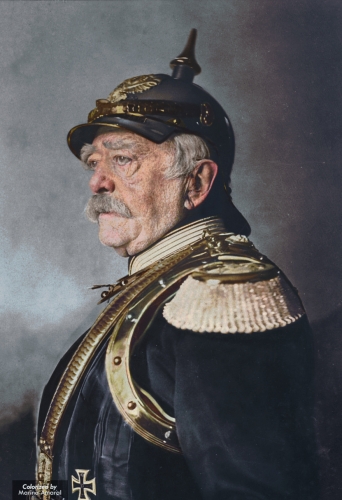 Robert Kagan, leader d’opinion néoconservateur des Etats-Unis, époux de Victoria Nuland (co-responsable du coup d’Etat de 2014 en Ukraine) et membre du Council on Foreign Relations, a publié dans le mensuel Foreign Affairs d’avril 2019 un article sur l’Allemagne, l’UE et les Etats-Unis. Le titre: «The New German Question. What Happens When Europe Comes Apart?» [La nouvelle question allemande. Que se passe-t-il lorsque l’Europe quitte le droit chemin?]. Le raisonnement se base sur les constructions suivantes: la création du Reich allemand en 1871 a créé au centre de l’Europe un foyer à troubles trop puissants, plongeant l’Europe et le monde dans deux guerres mondiales. Après 1945, il fut possible de stabiliser ce foyer à troubles – grâce à la garantie sécuritaire américaine pour l’Europe et à la politique européenne des Etats-Unis, grâce au système de libre-échange international dirigé par les Américains, grâce à une vague démocratique en Europe émanant des Etats-Unis et, notamment aussi, grâce à la lutte contre le nationalisme européen des USA, de l’UE et de ses organisations précédentes. Selon Kagan, dans la situation actuelle, tout cela n’est plus garanti et suscite donc de vives inquiétudes – notamment en prenant en compte l’Allemagne future.
Robert Kagan, leader d’opinion néoconservateur des Etats-Unis, époux de Victoria Nuland (co-responsable du coup d’Etat de 2014 en Ukraine) et membre du Council on Foreign Relations, a publié dans le mensuel Foreign Affairs d’avril 2019 un article sur l’Allemagne, l’UE et les Etats-Unis. Le titre: «The New German Question. What Happens When Europe Comes Apart?» [La nouvelle question allemande. Que se passe-t-il lorsque l’Europe quitte le droit chemin?]. Le raisonnement se base sur les constructions suivantes: la création du Reich allemand en 1871 a créé au centre de l’Europe un foyer à troubles trop puissants, plongeant l’Europe et le monde dans deux guerres mondiales. Après 1945, il fut possible de stabiliser ce foyer à troubles – grâce à la garantie sécuritaire américaine pour l’Europe et à la politique européenne des Etats-Unis, grâce au système de libre-échange international dirigé par les Américains, grâce à une vague démocratique en Europe émanant des Etats-Unis et, notamment aussi, grâce à la lutte contre le nationalisme européen des USA, de l’UE et de ses organisations précédentes. Selon Kagan, dans la situation actuelle, tout cela n’est plus garanti et suscite donc de vives inquiétudes – notamment en prenant en compte l’Allemagne future. L’incendie de «Notre-Dame» a déclenché un engouement …
L’incendie de «Notre-Dame» a déclenché un engouement …

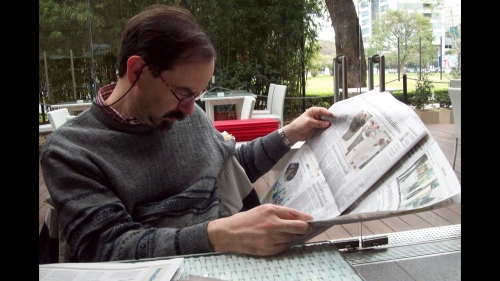


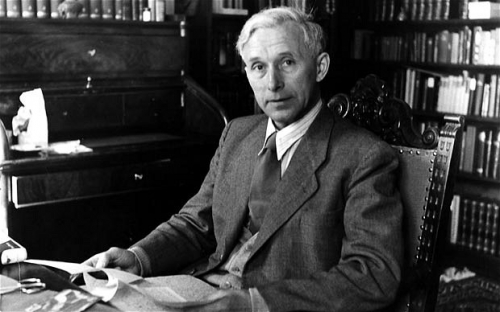
 Le Rebelle et l’Anarque sont ces figures, ces paradigmes, ces « représentations » offertes à la reconnaissance de l’homme qui les perçoit comme manifestation épiphaniques insaisissables par la pensée mais s’imposant à l’évidence, pour peu qu’il accepte – l’homme n’est jamais contraint que par soi-même dans la vision jüngerienne du monde – de ne pas lui tourner le dos.
Le Rebelle et l’Anarque sont ces figures, ces paradigmes, ces « représentations » offertes à la reconnaissance de l’homme qui les perçoit comme manifestation épiphaniques insaisissables par la pensée mais s’imposant à l’évidence, pour peu qu’il accepte – l’homme n’est jamais contraint que par soi-même dans la vision jüngerienne du monde – de ne pas lui tourner le dos.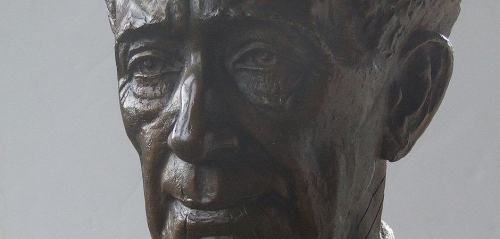
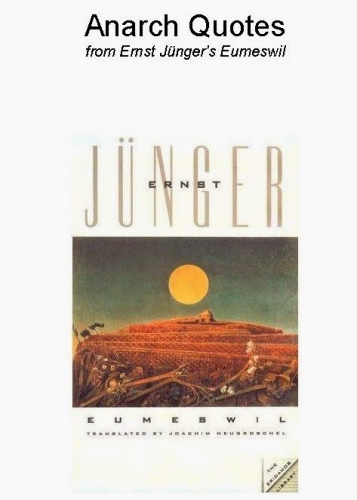 The first phase is the actively nihilistic phase. You can find this distinction in The Will to Power. Nietzsche explains that there are two kinds of nihilism. The first one is passive nihilism. It’s like a decrease in the strength of the spirit. It’s weariness. It’s weakness. It’s like a quasi-Buddhist “no” to life. It’s the will to hide from the suffering of life. So it is like an exhaustion, a devirilization, as we would say today. And for Nietzsche, of course, this was not only something metaphysical. It directly corresponded to the historical reality of Europe, and back in the nineteenth century, he said that Europe was now an aging Europe, an old Europe, a cosmopolitan Europe headed towards globalization. Not incidentally, Nietzsche was one of the pioneers of pan-Europeanism. I will also talk about that.
The first phase is the actively nihilistic phase. You can find this distinction in The Will to Power. Nietzsche explains that there are two kinds of nihilism. The first one is passive nihilism. It’s like a decrease in the strength of the spirit. It’s weariness. It’s weakness. It’s like a quasi-Buddhist “no” to life. It’s the will to hide from the suffering of life. So it is like an exhaustion, a devirilization, as we would say today. And for Nietzsche, of course, this was not only something metaphysical. It directly corresponded to the historical reality of Europe, and back in the nineteenth century, he said that Europe was now an aging Europe, an old Europe, a cosmopolitan Europe headed towards globalization. Not incidentally, Nietzsche was one of the pioneers of pan-Europeanism. I will also talk about that.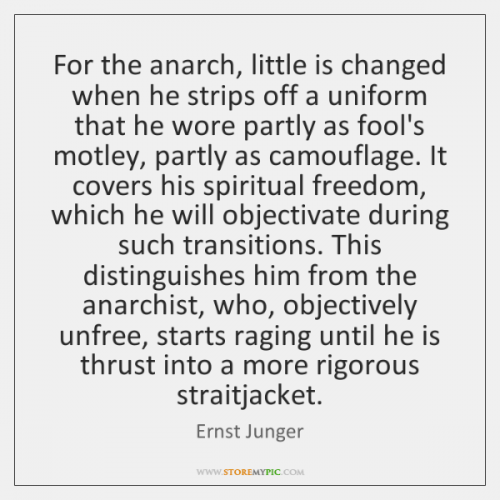

 So this is the concept of sovereignty. And the model of the Anarch was represented by a historian, Martin Manuel Venator, who serves in a fortress of the tyrant of a future city-state, Condor. He works in his fortress at night, at the bar, and he listens to different conversations among the visitors and writes down his reflections, and he says, “I am an Anarch in space, and a meta-historian in time.” At first, this conception of the Anarch was taken differently by Ernst Jünger’s colleagues in the Third Way. For instance, Julius Evola believed that the concept of the forest passage, of Der Waldgang, was a betrayal of Jünger’s early views. He said that it is a reverse version of Ernst Jünger as we knew him. It’s as if he felt there was something bourgeois about this concept. But ten years later, Evola developed exactly the same concept of the differentiated personality in his book, Ride the Tiger. He also developed the concept of apoliteia, and later he wrote
So this is the concept of sovereignty. And the model of the Anarch was represented by a historian, Martin Manuel Venator, who serves in a fortress of the tyrant of a future city-state, Condor. He works in his fortress at night, at the bar, and he listens to different conversations among the visitors and writes down his reflections, and he says, “I am an Anarch in space, and a meta-historian in time.” At first, this conception of the Anarch was taken differently by Ernst Jünger’s colleagues in the Third Way. For instance, Julius Evola believed that the concept of the forest passage, of Der Waldgang, was a betrayal of Jünger’s early views. He said that it is a reverse version of Ernst Jünger as we knew him. It’s as if he felt there was something bourgeois about this concept. But ten years later, Evola developed exactly the same concept of the differentiated personality in his book, Ride the Tiger. He also developed the concept of apoliteia, and later he wrote 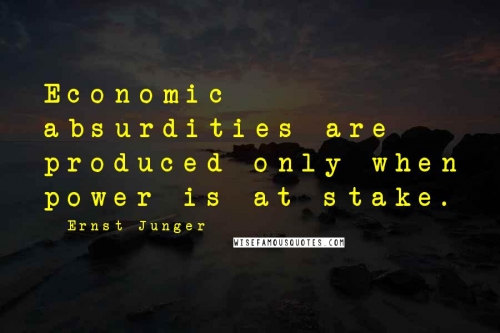

 In the Platz der deutschen Einheit (German Unity Square) in Düsseldorf, someone has covered the street name with Simone de Beauvoir Platz. This is one example among many that anyone living in the Federal Republic of Germany may encounter – evidence of the hatred of their country which some Germans feel. Evidence is all around. Now a book has been published stating and stressing this tendency of Germans to despise their birthright and identity.
In the Platz der deutschen Einheit (German Unity Square) in Düsseldorf, someone has covered the street name with Simone de Beauvoir Platz. This is one example among many that anyone living in the Federal Republic of Germany may encounter – evidence of the hatred of their country which some Germans feel. Evidence is all around. Now a book has been published stating and stressing this tendency of Germans to despise their birthright and identity.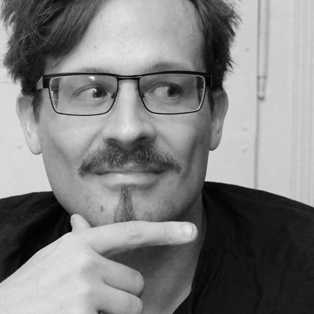 The first essay by Lichtmesz (photo) is an overview of the notion of national masochism. In medical terms, masochism is the desire to obtain and/or the pleasure obtained from pain administered either by oneself or by others to oneself. The earliest use of the expression “national masochism,” according to Lichtmesz, comes from the actor Gustav Gründgens – ironic, if true – since the central figure in Klaus Mann’s Mephisto, Hendrik Höfgen, is a thinly-disguised Gründgens, and that book is a case study in German shame. The novel is about an actor who makes his peace with National Socialism for the sake of his professional career, drawing a parallel between Gründgens working in Germany after 1933 and Faust selling his soul to Mephistopheles for twenty-four years of youth, pleasure, and success. However, this theme had already been appropriated with vastly more skill, talent, and subtlety in his father Thomas Mann’s Doktor Faustus. Klaus Mann worked for American propaganda during the war and committed suicide in 1949. He himself might serve as an exemplary case of German self-loathing.
The first essay by Lichtmesz (photo) is an overview of the notion of national masochism. In medical terms, masochism is the desire to obtain and/or the pleasure obtained from pain administered either by oneself or by others to oneself. The earliest use of the expression “national masochism,” according to Lichtmesz, comes from the actor Gustav Gründgens – ironic, if true – since the central figure in Klaus Mann’s Mephisto, Hendrik Höfgen, is a thinly-disguised Gründgens, and that book is a case study in German shame. The novel is about an actor who makes his peace with National Socialism for the sake of his professional career, drawing a parallel between Gründgens working in Germany after 1933 and Faust selling his soul to Mephistopheles for twenty-four years of youth, pleasure, and success. However, this theme had already been appropriated with vastly more skill, talent, and subtlety in his father Thomas Mann’s Doktor Faustus. Klaus Mann worked for American propaganda during the war and committed suicide in 1949. He himself might serve as an exemplary case of German self-loathing.



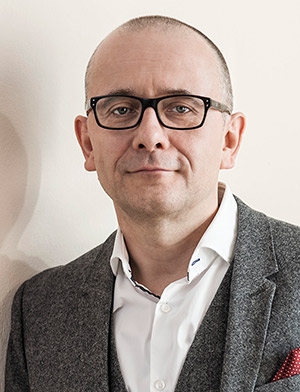 Klonovsky’s writing style is not unlike that of Tarki and other journalists at the British Spectator: intelligent, angry, snide. He recounts a program about Hans Michael Frank and an interview with his son, Niklas Frank. Niklas Frank takes masochism to new heights by explaining that everywhere he goes, he carries a picture with him depicting his father hanging from the gallows at Nuremberg. That way he can always reassure himself that Daddy “is well and truly dead” (p. 123). This must have been a repeat of an old program, since I remember a German girlfriend of mine being appalled by Niklas Frank when she watched the program on television in the late 1980s.
Klonovsky’s writing style is not unlike that of Tarki and other journalists at the British Spectator: intelligent, angry, snide. He recounts a program about Hans Michael Frank and an interview with his son, Niklas Frank. Niklas Frank takes masochism to new heights by explaining that everywhere he goes, he carries a picture with him depicting his father hanging from the gallows at Nuremberg. That way he can always reassure himself that Daddy “is well and truly dead” (p. 123). This must have been a repeat of an old program, since I remember a German girlfriend of mine being appalled by Niklas Frank when she watched the program on television in the late 1980s.

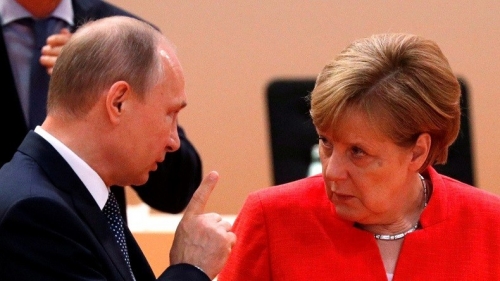
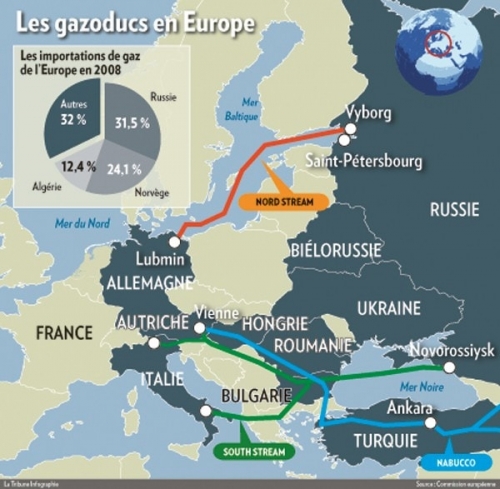
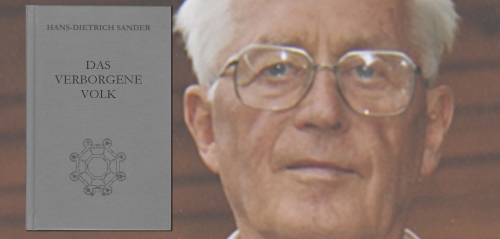
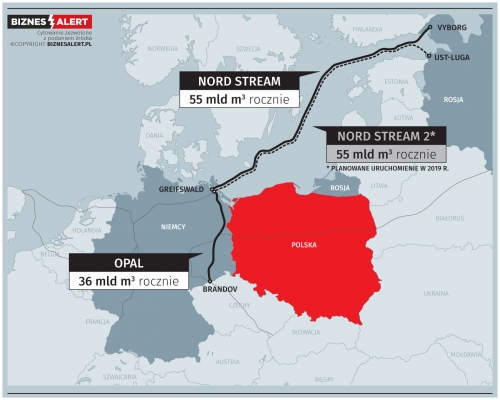

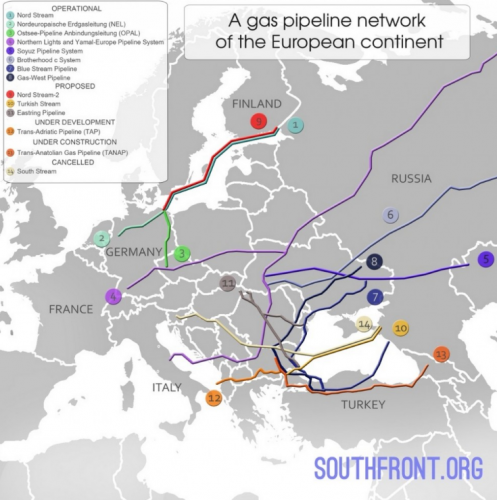
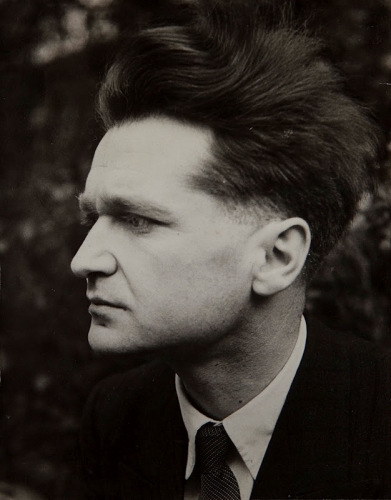
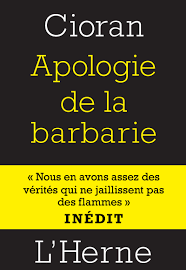 Emil Cioran
Emil Cioran A rare and stimulating combination in Cioran’s writings: unsentimental observation and intense pathos.
A rare and stimulating combination in Cioran’s writings: unsentimental observation and intense pathos. But fascism cannot work miracles. Politics must work with the human material and historical trajectory that one has. That is being true to oneself. To wish for total transformation and the tabula rasa is to invite disaster. Such revolutions are generally an exercise in self-harm. Once the passions and intoxications have settled, one finds the nation stunted and lessened: by civil war, by tyranny, by self-mutilation and deformation in the stubborn in the name of utopian goals. The historic gap with the ‘advanced’ nations is widened further still by the ordeal.
But fascism cannot work miracles. Politics must work with the human material and historical trajectory that one has. That is being true to oneself. To wish for total transformation and the tabula rasa is to invite disaster. Such revolutions are generally an exercise in self-harm. Once the passions and intoxications have settled, one finds the nation stunted and lessened: by civil war, by tyranny, by self-mutilation and deformation in the stubborn in the name of utopian goals. The historic gap with the ‘advanced’ nations is widened further still by the ordeal.
 Yes, Elementarteilchen was an immediate sensation and a huge bestseller.
Yes, Elementarteilchen was an immediate sensation and a huge bestseller. 
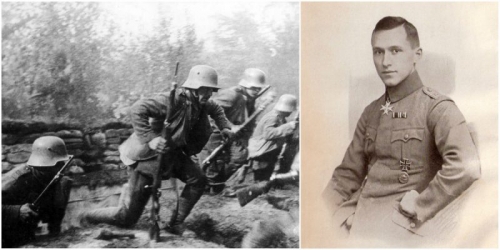

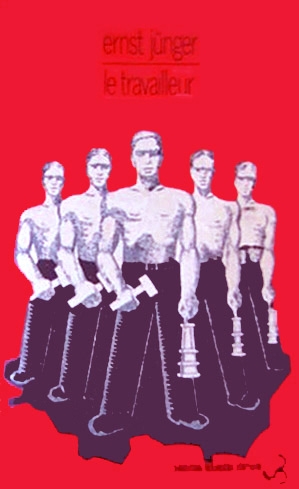 La phase du « Travailleur » a toutefois été très brève dans la longue vie de Jünger. Mais même après sa sortie sereine et graduelle hors de l’idéologie techniciste , Jünger refuse tout « escapisme romantique » : il rejette l’attitude de Cassandre et veut regarder les phénomènes en face, sereinement. Pour lui, il faut pousser le processus jusqu’au bout afin de provoquer, à terme, un véritablement renversement, sans s’encombrer de barrages ténus, érigés avec des matériaux surannés, faits de bric et de broc. Sa position ne relève aucunement du technicisme naïf et bourgeois de la fin du 19ème siècle : pour lui, l’Etat, la chose politique, le pouvoir sera déterminé par la technique, par la catégorie du « Travail ». Dans cette perspective, la technique n’est pas la source de petites commodités pour agrémenter la vie bourgeoise mais une force titanesque qui démultipliera démesurément le pouvoir politique. L’individu, cher au libéralisme de la Belle Epoque, fera place au « Type », qui renoncera aux limites désuètes de l’idéal bourgeois et se posera comme un simple rouage, sans affects et sans sentimentalités inutiles, de la machine étatique nouvelle, qu’il servira comme le soldat sert sa mitrailleuse, son char, son avion, son sous-marin. Le « Type » ne souffre pas sous la machine, comme l’idéologie anti-techniciste le voudrait, il s’est lié physiquement et psychiquement à son instrument d’acier comme le paysan éternel est lié charnellement et mentalement à sa glèbe. Jünger : « Celui qui vit la technique comme une agression contre sa substance, se place en dehors de la figure du Travailleur ». Parce que le Travailleur, le Type du Travailleur, s’est soumis volontairement à la Machine, il en deviendra le maître parce qu’il s’est plongé dans le flux qu’elle appelle par le fait même de sa présence, de sa puissance et de sa croissance. Le Type s’immerge dans le flux et refuse d’être barrage bloquant, figeant.
La phase du « Travailleur » a toutefois été très brève dans la longue vie de Jünger. Mais même après sa sortie sereine et graduelle hors de l’idéologie techniciste , Jünger refuse tout « escapisme romantique » : il rejette l’attitude de Cassandre et veut regarder les phénomènes en face, sereinement. Pour lui, il faut pousser le processus jusqu’au bout afin de provoquer, à terme, un véritablement renversement, sans s’encombrer de barrages ténus, érigés avec des matériaux surannés, faits de bric et de broc. Sa position ne relève aucunement du technicisme naïf et bourgeois de la fin du 19ème siècle : pour lui, l’Etat, la chose politique, le pouvoir sera déterminé par la technique, par la catégorie du « Travail ». Dans cette perspective, la technique n’est pas la source de petites commodités pour agrémenter la vie bourgeoise mais une force titanesque qui démultipliera démesurément le pouvoir politique. L’individu, cher au libéralisme de la Belle Epoque, fera place au « Type », qui renoncera aux limites désuètes de l’idéal bourgeois et se posera comme un simple rouage, sans affects et sans sentimentalités inutiles, de la machine étatique nouvelle, qu’il servira comme le soldat sert sa mitrailleuse, son char, son avion, son sous-marin. Le « Type » ne souffre pas sous la machine, comme l’idéologie anti-techniciste le voudrait, il s’est lié physiquement et psychiquement à son instrument d’acier comme le paysan éternel est lié charnellement et mentalement à sa glèbe. Jünger : « Celui qui vit la technique comme une agression contre sa substance, se place en dehors de la figure du Travailleur ». Parce que le Travailleur, le Type du Travailleur, s’est soumis volontairement à la Machine, il en deviendra le maître parce qu’il s’est plongé dans le flux qu’elle appelle par le fait même de sa présence, de sa puissance et de sa croissance. Le Type s’immerge dans le flux et refuse d’être barrage bloquant, figeant.
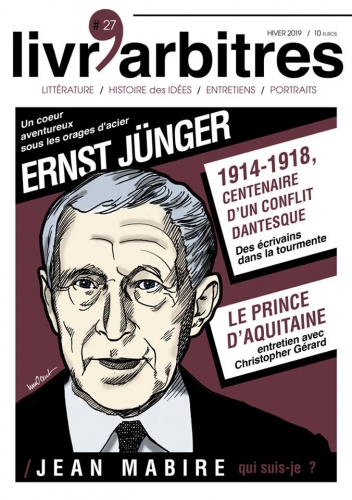








 4) Abordons maintenant votre nouvel ouvrage Wewelsburg, histoire d’un nouveau Montsalvat. Celui-ci retrace l’histoire de ce lieu énigmatique pour beaucoup, fantasmé par certains. Que fut en réalité Wewelsburg ?
4) Abordons maintenant votre nouvel ouvrage Wewelsburg, histoire d’un nouveau Montsalvat. Celui-ci retrace l’histoire de ce lieu énigmatique pour beaucoup, fantasmé par certains. Que fut en réalité Wewelsburg ?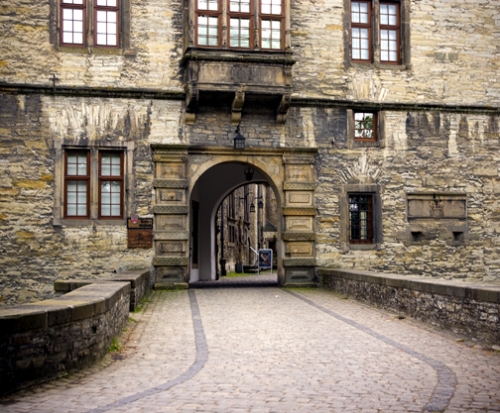

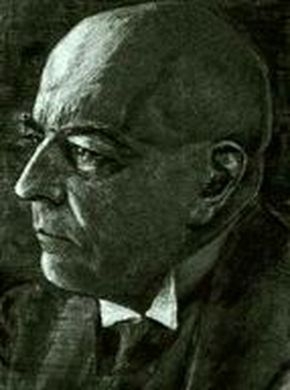

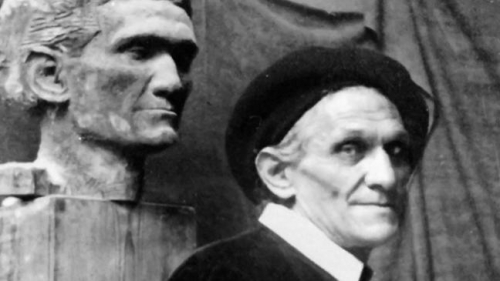
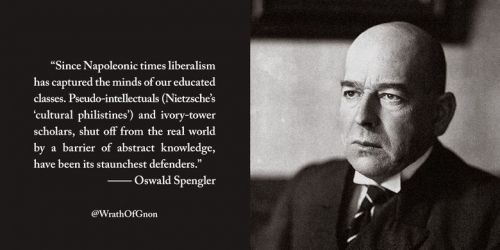
Vor gut 80 Jahren begann Ernst Jünger sein Tagebuch zum Zweiten Weltkrieg.
Sein Kriegstagebuch über den Ersten Weltkrieg, In Stahlgewittern, ist zumindest vom Titel und groben Inhalt her sehr vielen bekannt. Dieses Erstlingswerk ist bis heute ohne Frage eines der erschütterndsten Zeugnisse über den Frontalltag des Grabenkrieges, welchen Jünger vier Jahre lang erlebte. Weitaus unbeachteter blieben hingegen seine Notizen über den Zweiten Weltkrieg, die Strahlungen.
Davon abgesehen, erschien die Erstausgabe bereits 1949 mit einer Auflage von 20.000 Exemplaren und zählt für viele Jünger-Kenner mit zum Besten, was der Literat je zu Papier brachte. Die geringere Bekanntheit mag heute dadurch zu erklären sein, daß Jünger während des Zweiten Weltkrieges hauptsächlich in der Verwaltung tätig war, und nicht an der Front kämpfte, was bei einigen potentiellen Lesern sicherlich die „Action“ vermissen lässt. Ganz gefahrlos waren jedoch auch für Jünger die Jahre 1939 bis 1945 nicht.
Die von April 1939 bis Dezember 1948 reichenden Strahlungen, welche – je nach Auflage – über 1.000 Seiten umfassen, setzen zunächst mit dem Buch Gärten und Straßen an. In diesem schildert Jünger seine Erlebnisse aus dem Frankreichfeldzug, an welchem er als Hauptmann teilnahm. Prägten während des Ersten Weltkrieges buchstäbliche „Stahlgewitter“ seinen Kriegsalltag, bekam der Hauptmann der Infanterie nun nur noch „Gärten und Straßen“ zu sehen. Der Feldzug im Mai und Juni 1940 war bereits zu Ende, noch bevor seine stets zu Fuß vorwärts marschierende Truppe in das Kriegsgeschehen eingreifen konnte.
Die Jahre an der Seine
Dieser bereits 1942 veröffentlichte erste Teil ist dabei deutlich zurückhaltender geschrieben als der nach dem Krieg veröffentlichte Rest seines Tagebuches, was man insbesondere an den politischen Beurteilungen der Zeit erkennt. Den ergiebigeren Kern bilden daher die beiden aus den Jahren 1941-44 geschriebenen „Pariser Tagebücher“, die im besetzten Paris vom Leben in der Etappe erzählen.
Hier unterhielt Jünger auch Beziehungen zu unterschiedlichen Größen der Zeit, wie Pablo Picasso, Louise Ferdinand Céline und auch Carl Schmitt, der ihn in Paris besuchen kam. Aber auch zu den in Paris aktiv arbeitenden Verschwörern des 20. Juli, wie Speidel, Stülpnagel und Hofacker, unterhielt Jünger regen Kontakt.
Im Gegensatz zu den drei genannten blieb Jüngers Mitwisserschaft am Umsturzversuch jedoch unentdeckt. Seinen Beitrag am Widerstand lieferte er in Form der 1942 verfassten Friedensschrift, die nach dem Krieg gesondert veröffentlicht wurde. Eine noch spätere Veröffentlichung fand gar seine Schrift Zur Geiselfrage, in welcher er die Umstände der aus Berlin befohlenen Hinrichtungen inhaftierter Franzosen schildert, die 1941 als Racheakt durchgeführt werden mussten. Auf Grundlage dieser Schrift spielt zudem der 2011 erschienene Film vom Volker Schlöndorff Das Meer am Morgen.
Die innere Freiheit bewahren
Diese und viele weitere Themen sind es, welche gerade die beiden Pariser Tagebücher als den wertvollsten Teil der Strahlungen erscheinen lassen. Die öffentliche Beschäftigung mit ihnen beschränkt sich jedoch für gewöhnlich leider recht oberflächlich auf die immer gleichen Aspekte. So auf seine verschiedenen Liaisons in Paris oder auf seinen angeblich rein elitären Blick, der ihn das Leid um sich herum vergessen ließ.
Paris, 14. März 1943
Wenn alle Gebäude zerstört sein werden, bleibt doch die Sprache bestehen, als Zauberschloß mit Türmen und Zinnen und mit uralten Gewölben und Gängen, die niemand je erforschen wird. Dort, in den Schächten, Oublietten und Bergwerken, wird man noch weilen können und dieser Welt verlorengehen.
Derlei Sentenzen bilden den eigentlichen Gewinn seiner Schriften. Sie sind zeitlich ungebunden. „Das Ordnen der Geschehnisse als Akt der Selbstbehauptung“, wie es in einem Vorwort des Verlages heißt.
„Wenn ein Pulverturm in die Luft fliegt, überschätzt man die Bedeutung der Streichhölzer.“
Nach dem Rückzug aus Paris vor den Invasionstruppen der Alliierten wird Jünger schließlich aus der Wehrmacht entlassen und kehrt zurück in das niedersächsische Kirchhorst, wo er das Kriegsende erlebt. Festgehalten wird diese Zeit in den beiden letzten Büchern Kirchhorster Blätter und Die Hütte im Weinberg (Jahre der Okkupation). Wie bereits 1940 in Frankreich, beschreibt Jünger den Einbruch einer gewaltigen Übermacht in eine bereits besiegte Region.
Kirchhorst, 11. April 1945
Von einer solchen Niederlage erholt man sich nicht wieder wie einst nach Jena oder nach Sedan. Sie deutet eine Wende im Leben der Völker an, und nicht nur zahllose Menschen müssen sterben, sondern auch vieles, was uns im Innersten bewegte, geht unter bei diesem Übergang. Man kann das Notwendige sehen, begreifen, wollen und sogar lieben und doch zugleich von ungeheurem Schmerz durchdrungen sein.
Nun braucht es keinen Weltkrieg, um zu vielen Einsichten zu gelangen, die Jünger in seinem Tagebuch niederschrieb. Diese Erkenntnis schließt denn auch wiederum den Bogen zu uns heutigen Lesern, die gerade in dieser Schrift Jüngers weitaus mehr finden als nur zeitbezogene Singularitäten. „Hinsichtlich der Wahrnehmung der historischen Realitäten bin ich vorgeschaltet – das heißt, ich nehme sie etwas eher, etwas vor ihrem Erscheinen wahr. Für meine praktische Existenz ist das nicht günstig, da es mich zu den jeweils waltenden Mächten in Widerspruch bringt.“